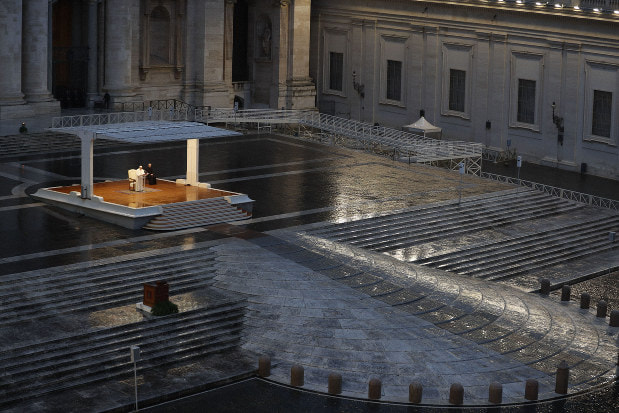I harbor respect for churches and the instrumental role they have played in the faith throughout history. I feel indebtedness toward all the saints and theologians. I love to be present within church buildings. I have a weak spot for traditional Christian art, stained glass, vestments, hymns, prayers - all of it.
I very much would have preferred the churches proved me wrong. I would have preferred churches proved they truly were essential. I would have preferred churches used this current crisis to spark an authentic Christian Renaissance, one that bathed the globe in the light of Christ. Believe me when I say I very much would have preferred all of that. But my preferences are irrelevant.
By obediently closing their doors on their congregations and obsequiously bowing to secular authorities, churches across the West have made three things glaringly obvious (at least to me):
- they don't believe what they preach
- they lack moral courage
- they have surrendered all semblance of religious authority
Even if churches survive the current lockdown, they will but shadows of their former selves (and in many cases, that's not saying much). Perhaps the pews will continue to fill. Perhaps the masses and services will go on. But in my mind, all of this will continue purely at a symbolic level. The essence supporting the symbolic has been extinguished. Simply put, Christian churches in the West have given up the Ghost.
Nevertheless, believers will remain (some among the clergy itself), and it is the believers that will keep Christianity alive. Believers - true, dedicated, serious Christians - will answer the call the churches have neglected to answer. They will keep the spirit alive, maintain or re-establish certain traditions, and create new traditions most likely starting at and remaining at a small localized level.
More importantly, I think these believers will become trailblazers. They will participate in Christianity's continued and necessary development. They will push Christianity forward. They will eventually take the step our ancestors neglected to take two centuries ago.
At one level, the separation of church and Christianity is a lamentable catastrophe.
At another level, the separation could mark the start of a new era - a new consciousness.
The end of churches is not the end of Christianity; on the contrary, the end of churches could just mark the beginning (or return to) a higher, more genuine Christianity.


 RSS Feed
RSS Feed

